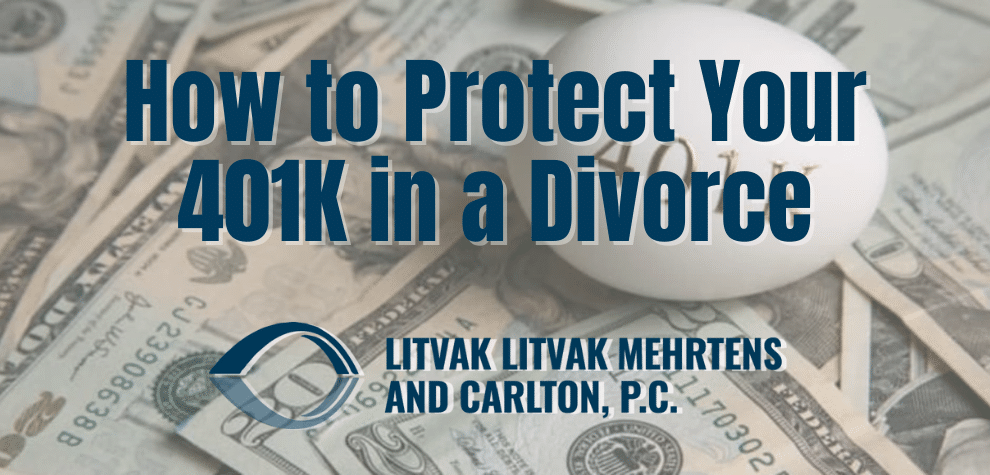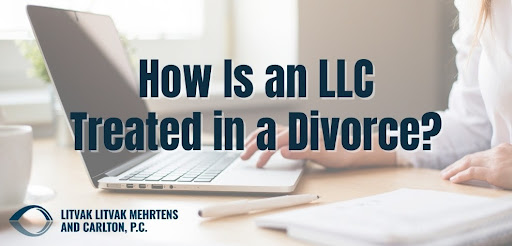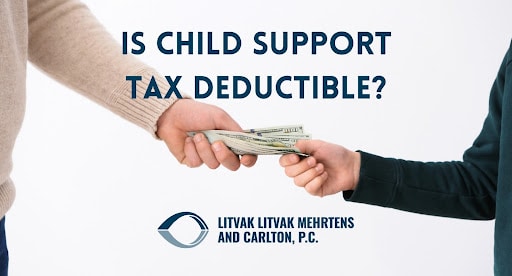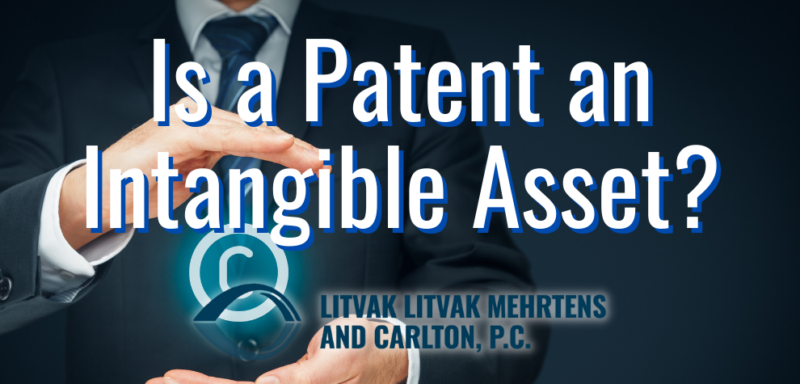It’s no surprise that divorce is an extremely taxing experience, both emotionally and financially. You and your spouse will need to decide how to divide your assets. This includes your retirement accounts and your 401K. The main challenge is settling on something that you both agree on. However, the underlying challenge for you personally is finding out how to protect your 401K in a divorce. Minimizing taxes and holding onto your savings is a top priority. With the help of an experienced Denver divorce attorney, you’ll be better off than if you tried to handle it alone.
At Litvak Litvak Mehrtens and Carlton, we offer a wide range of legal services to those looking to divorce in Colorado. Whether you’re undergoing a high asset divorce or struggling with property division, we have the experience to help. For more information on how to protect your 401K in a divorce, or to schedule a consultation with us, please call 303-951-4506 today. You can also fill out our online intake form.
Financial Considerations Before Divorce
Before dealing with the divorce decree, we recommend speaking with a qualified and experienced divorce attorney to review your finances. You can also meet with one or more of the following individuals.
- Social Security benefits plan administrator
- Financial advisor for retirement and savings plans
- Pension plan administrator
We also recommend reviewing all of the following information with these individuals, as well as with your attorney.
- Your individual retirement account and Roth IRA
- Any and all life insurance policies
- Your credit cards and their debt
- Any any all court orders dealing with former spouses
- Child support obligations
- Retirement income
- Wills, prenuptial agreements, and other related documents
Luckily, gathering almost all of this information is completely free. Your divorce attorney can even help you with it. Once you gather everything, meet with them to review your retirement plans and account balances, as well as the divorce agreement.
How Are 401Ks Split During a Divorce?
The way divorcing spouses share 401Ks is determined by a number of circumstances, including where they live, the value of their marital assets, and the amount of each 401K.
Most states adhere to marital property law, which mandates that marital assets be distributed equitably, though not always equally. In community property states, all marital assets must be split 50/50 in the event of a divorce. The important word here is marital assets. Any money you deposited into your 401K before you got married is not marital or community property in any of these states. Thus, it is not liable for division in the event of a divorce.
Courts sometimes order a spouse with a lot more savings than the other one to give some of those savings to the ex-spouse. However, this does not equal liquidating your 401K and simply giving a portion over to your ex.
Funds that you contributed to the 401K during the marriage are marital property unless you have a prenup in place regarding that. The way in which 401Ks are split largely depends on your marital assets as a whole. If you both have similar retirement assets, you might decide to just keep your own accounts.
What Usually Happens with Other Retirement Accounts and 401Ks During Divorce?
One of the most complicated problems in divorce proceedings is the split of retirement assets. There are tax consequences as well as certain norms and legislation that must be followed. A divorce, for example, is a once-in-a-lifetime opportunity to take early withdrawals from your 401(k) or IRA without incurring a tax penalty if your spouse is awarded a portion of your account.
It’s particularly difficult to divide retirement savings after a divorce since investment accounts are linked to the stock market. This is because fluctuations in the stock market have a direct impact on the value of your account. As a result, the divorce order must contain extremely particular language. The best way to determine what happens with your assets is to speak with your divorce attorney.
Is My 401K Part of Marital Property?
Retirement funds, like most assets after a divorce, are usually subject to equitable distribution. Equitable distribution distributes the assets and liabilities accumulated throughout the marriage by either partner.
All property that is not marital is classified as non-marital property, often known as separate property. Assets obtained before a couple marries are usually considered non-marital property. In most divorces, each spouse maintains their own non-marital property.
How Much Does My Ex Get from My Retirement Accounts?
This depends on the laws of your state. Colorado follows equitable distribution guidelines. Equitable distribution asserts that some conditions render property ownership fundamentally unequal, rather than treating each participant equally. Educational attainment and employability, how much each party makes and spends, what each party’s financial demands are, and each party’s age and health are all factors that make the parties unequal. The belief also considers the reasons for the divorce, such as if one of the parties was abusive or unfaithful. Equitable distribution looks toward the future since it examines each party’s financial situation after the divorce.
What Is a 401K Divorce Cash Out?
Many people who are going through a divorce want money for a down payment on a new home or to support living expenses while they look for work. One option to acquire cash is to take a lump-sum payment from your ex’s retirement account as part of the property settlement.
Taking money from a 401K before the age of 59 1/2 is usually subject to a 10% penalty cost. Early withdrawals as part of a divorce settlement can be made without this charge provided a series of particular requirements are followed, including the use of a Qualified Domestic Relations Order.
Can You Cash Out Your 401K Before Divorce?
Once your divorce process begins, you can’t usually get rid of marital assets like retirement accounts. Also, even if you empty an account, your spouse can still ask for their share. Therefore, you’ll likely still have to pay. Even though you can cash out your account whenever you want, you must accept the 10% penalty charge if you’re under the age of 59 ½. You will also owe income taxes.
What Is a Qualified Domestic Relations Order?
In the event of a divorce, a qualified domestic relations order (QDRO) is a decree or court order that directs a part of a retirement plan to be assigned or paid to someone else, like the spouse or dependent. During a divorce, the couple’s assets are usually shared, but because this doesn’t always include retirement plans, a QDRO is employed.
Is It Possible to Legally Hide Assets During Divorce?
During a divorce, it is unlawful to hide your financial assets, but not in the way you would assume. Although there are no laws that specifically state that concealing assets is unlawful, you are expected to tell the truth throughout a divorce. It would be perjury, a crime, to conceal a bank account during divorce proceedings.
How to Protect Your 401K in a Divorce
When splitting up your 401K money and other assets, your first aim should be to reduce the amount of taxes and fees you pay, since they can put your retirement savings back even more. It’s critical that you complete the necessary papers and explain exactly how you intend to split your assets. This is something that your divorce attorneys may assist you with. If you can provide your spouse other marital assets of equal worth, such as a home or car, you may not need to do anything with your 401K money. Your retirement funds remain unaffected if they accept this.
You’ll need a qualified domestic relations order if you and your spouse agree to give up a portion of your 401K. This is a court order that grants your spouse access to a part of your 401K savings. Typically, you split your 401K into two separate accounts. You may continue to manage and contribute to yours, and your spouse can manage their finances and investment possibilities as well, but they can’t actively contribute to it.
If you’ve left your job and your plan allows it, you may be able to roll your 401K money into an IRA. You may then put your money into an IRA in your name and give your spouse their money into a second IRA. You may have to pay a modest one-time rollover charge, but you won’t have to pay taxes on the money until you withdraw it in retirement.
What Is a 401K Hardship Divorce Withdrawal?
If the court orders you to send cash to your ex-spouse or children, a hardship withdrawal allows you to remove money from your 401K without paying the 10% penalty charge.
Is It Possible to Stop Contributing to My 401K During Divorce?
It is entirely possible, but the larger question is whether or not you should stop contributing. You have the option to modify your plan membership status or contribution amounts. However, you must first check your plan to determine whether you are within the time periods that allow this. When a divorce is underway, some people find that halting retirement contributions helps them save money for expenses and attorney fees. Keep in mind, however, that anything you spend after the date of separation is almost certainly your separate property.
Contact Litvak Litvak Mehrtens and Carlton Today
If you’re struggling to understand the complexities of finances during divorce, we’re here for you. At Litvak Litvak Mehrtens and Carlton, we have extensive experience in retirement assets and divorce. So many of our clients have complicated finances. For this reason, it’s imperative that we understand exactly how to navigate these tough times. With our knowledge and experience, you can rest assured that you’ll be in good hands. For more information, or to schedule a consultation, please call 303-951-4506 today.






